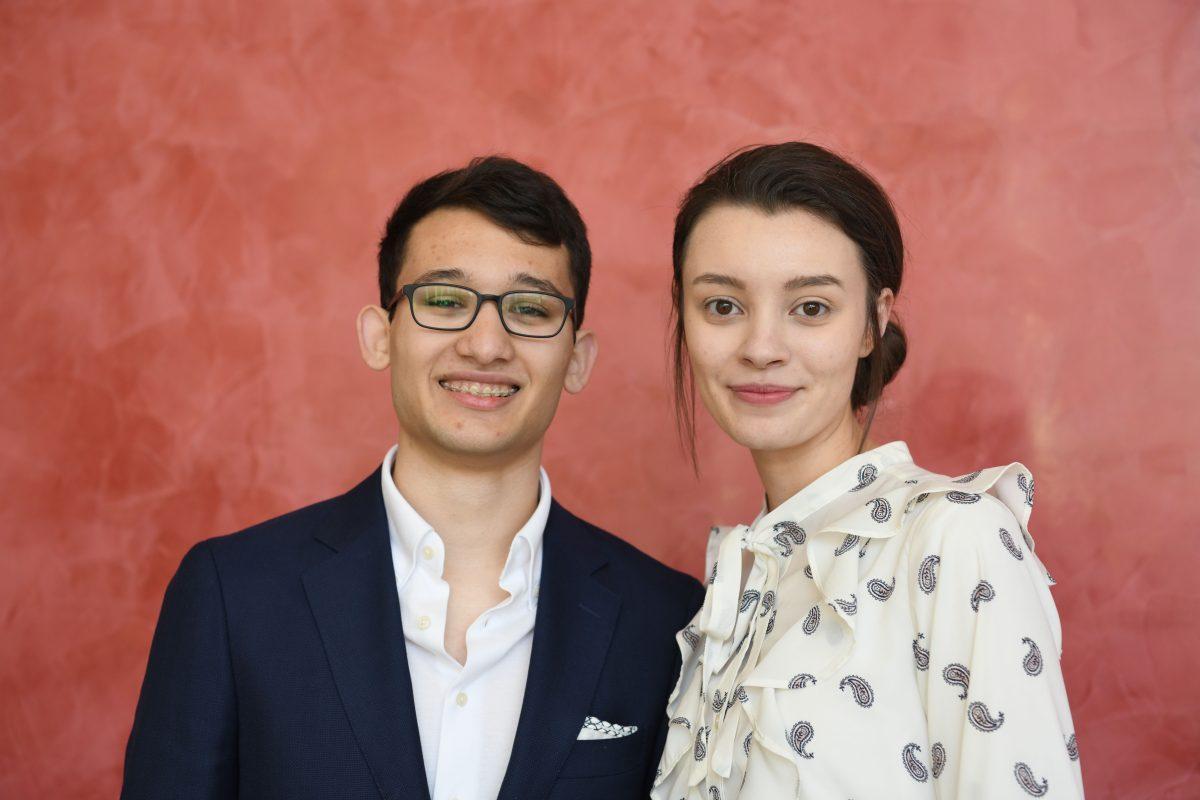
Biomedical engineering junior Trevor Schmaeling (left) and public affairs junior Hope Cory are running for president and vice president on the "Tier One" ticket. Photo by Aasav Sureja | Mercury Staff.
Tier One, one of the four tickets with presidential or vice-presidential
candidates in the most contested Student Government election in UTD history, is
running on a platform of improving transfer student experiences, increasing
transparency and supporting the expansion of the Office of Student AccessAbility.
Biomedical engineering junior Trevor Schmaeling said he was
motivated to run as SG president after serving as senator and hearing from
students that their voices weren’t being heard.
Hope Cory, a public affairs junior, served as SG president at
her prior institution, San Jacinto College in Houston, before transferring to
UTD. She is running to serve as vice president under the Tier One ticket. Cory said
she saw an underrepresentation of transfer students, veteran students and
students with disabilities within SG and wanted to serve all students rather
than certain populations only.
Schmaeling said they decided on “Tier One” as the name of
their ticket because UTD is currently a “Tier One” research institution,
designated by the Carnegie Classification of Institutions of Higher Education,
and that they wanted to apply this prestige to SG.
“We believe it’s time for SG to be Tier One, and what we
mean by that is not only does student government hear all student voices, but
it also represents all students,” Schmaeling said.
Cory said the current Quality
Enhancement Plan — a document that identifies instititutional issues and
formulates a plan to address them — focuses on transfer students and providing
them with resources to better assimilate into campus life. Cory said while
administration does a lot for transfer students, she felt that as SG, they had
a responsibility to contribute.
“When a transfer student gets to campus, the hardest part
for them is finding a place to belong, and as SG we want to create that for
them and help them find a place to belong,” Cory said. “It doesn’t have to be
SG, but we want to help them find that place and have them be able to say,
‘This is my UTD.’”
Cory said Tier One plans to create specific ad-hoc committees
within SG to address certain issues with underserved populations and provide
them with resources they need. Additionally, Tier One’s focus on increasing
transparency involves recording SG meetings and providing monthly updates on SG
affairs, Cory said.
“The point of this is to show students that SG, who reps
the students, that we’re going to be representing them as well. We’re not just
going to leave it up to the administration to take care of you,” Schmaeling
said. “We want your voices in SG because we affect all student action and
experiences on campus.”
Schmaeling said they plan to try and get SG social media
platforms verified and create events to incentivize students to keep up with SG.
He said that through increased communication, students will see the results of SG
projects as they’re completed.
“I think the main issue is that students don’t know what SG
is currently doing. It leaves some confusion between the students, the SG and
the administration,” Schmaeling said. “The easiest way to increase transparency
with the students is simply tell them the truth about what SG is doing. I think
that would solve a lot of issues between students and administration is SG
being the enforcer and the communicator between the two of them.”
Tier One’s platform also includes raising awareness about issues
populations with disabilities have on campus.
“We just want better
accessibility, and with the new OSA office there wouldn’t be as much of an
issue,” Schmaeling said.
Schmaeling said he wants to increase student outreach and
raise awareness about SG’s presence through social media outreach and meeting
with students in person.
“I think just having that outreach with fellow students and
letting them know that I’m not afraid to go up to (them) and talk to (them). I
think … an issue with some SG senators is that there’s not really much outreach
in going up to students, they just show up to SG and that’s it, and that’s not
what we’re about,” Schmaeling said. “This isn’t a popularity contest. This is
to represent students, so we need to treat it as that.”